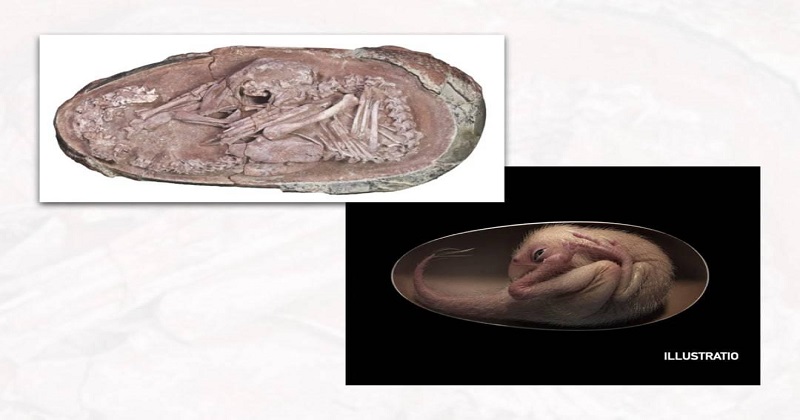
Scientists announced on Tuesday that they had uncovered a completely preserved dinosaur embryo that was at least 70 million years old and could have hatched at any moment. The dinosaur embryo was discovered in Ganzhou, Southern China, and belonged to a toothless theropod dinosaur, or oviraptorosaur, called ‘Baby Yingliang’ by the researchers.
‘It is one of the best dinosaur embryos ever found in history’, University of Birmingham researcher Fion Waisum Ma, who co-authored a paper in the journal Science said.
Oviraptorosaurs, which means ‘egg thief lizards’ in English, were feathered dinosaurs that lived during the Late Cretaceous era. Variable beak forms and sizes up to eight metres (26 feet) long were among their most distinguishing attributes. At the Yingliang Stone Nature History Museum, ‘Baby Yingliang’ is currently 27 centimetres (10.6 inches) long from head to tail and is housed in a 17 centimetre-long egg.
According to scientists, the creature is between 72 and 66 million years old and was most likely preserved by a violent mudslide that buried the egg for ages, keeping it safe from scavengers. If it had lived to adulthood, it would have grown to be two to three metres long and would have eaten vegetation.
They were also concerned that the egg may contain an unborn dinosaur, so they scraped a piece of Baby Yingliang’s eggshell away to reveal the embryo within.
Also Read: Scientists make plastic to repair on its own by using only light
‘This little prenatal dinosaur looks just like a baby bird curled in its egg, which is yet more evidence that many features characteristic of today’s birds first evolved in their dinosaur ancestors’, said Professor Steve Brusatte of the University of Edinburgh, part of the research team, in a statement.
A team of scientists hopes to study Baby Yingliang in greater detail by using advanced scanning techniques to image its entire skeleton, including its skull bones since part of its body is still covered by rock.

Post Your Comments